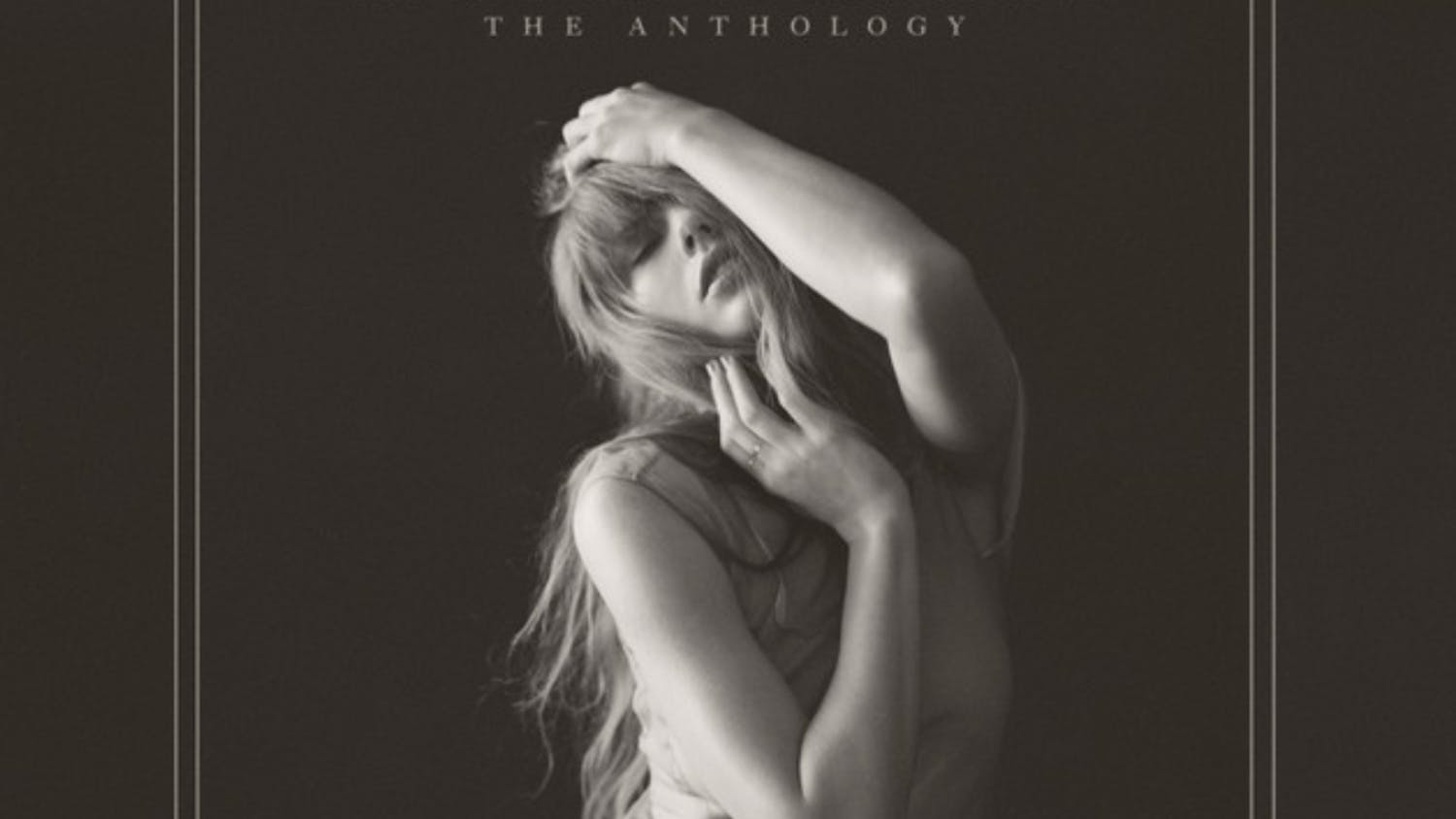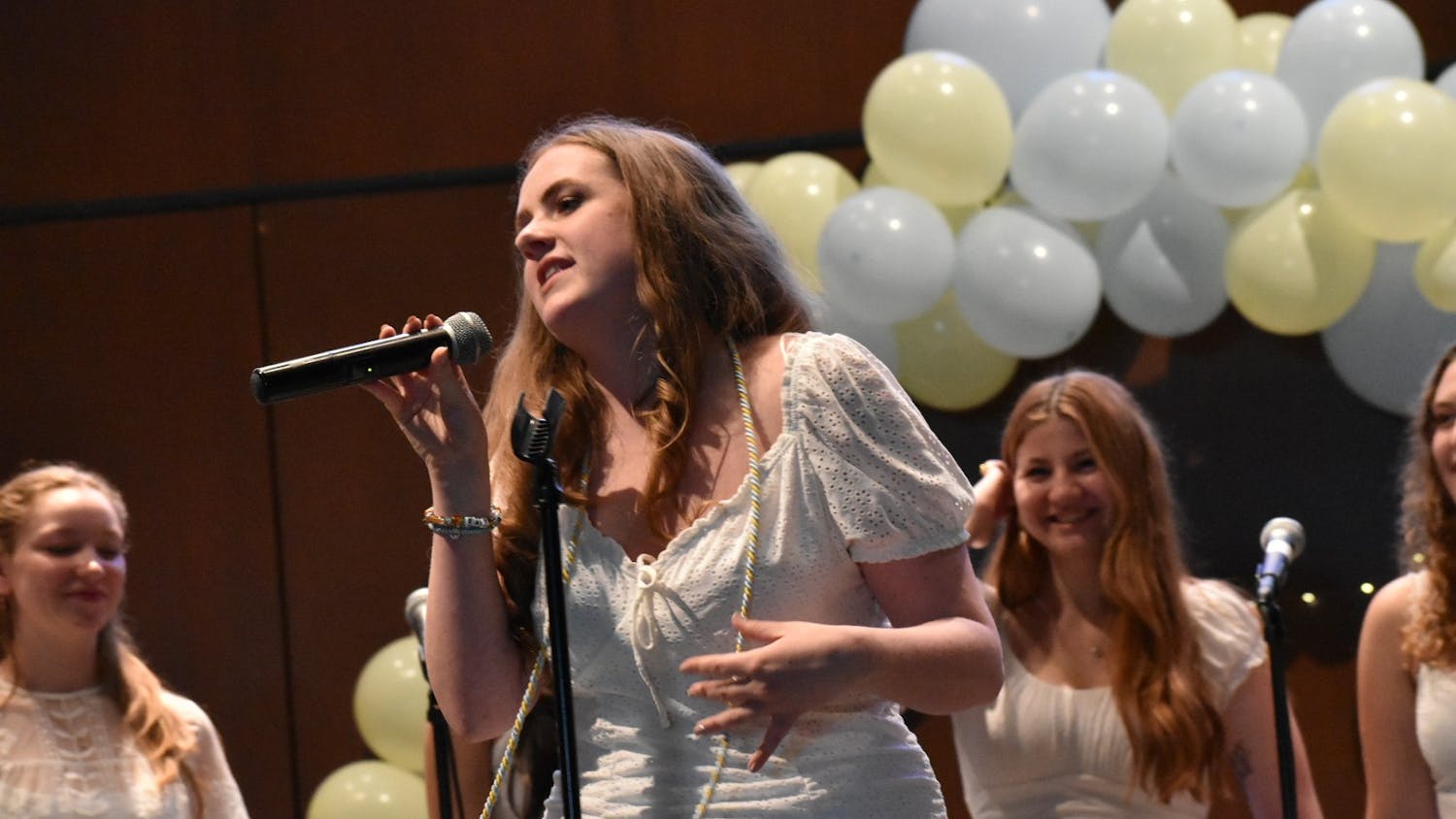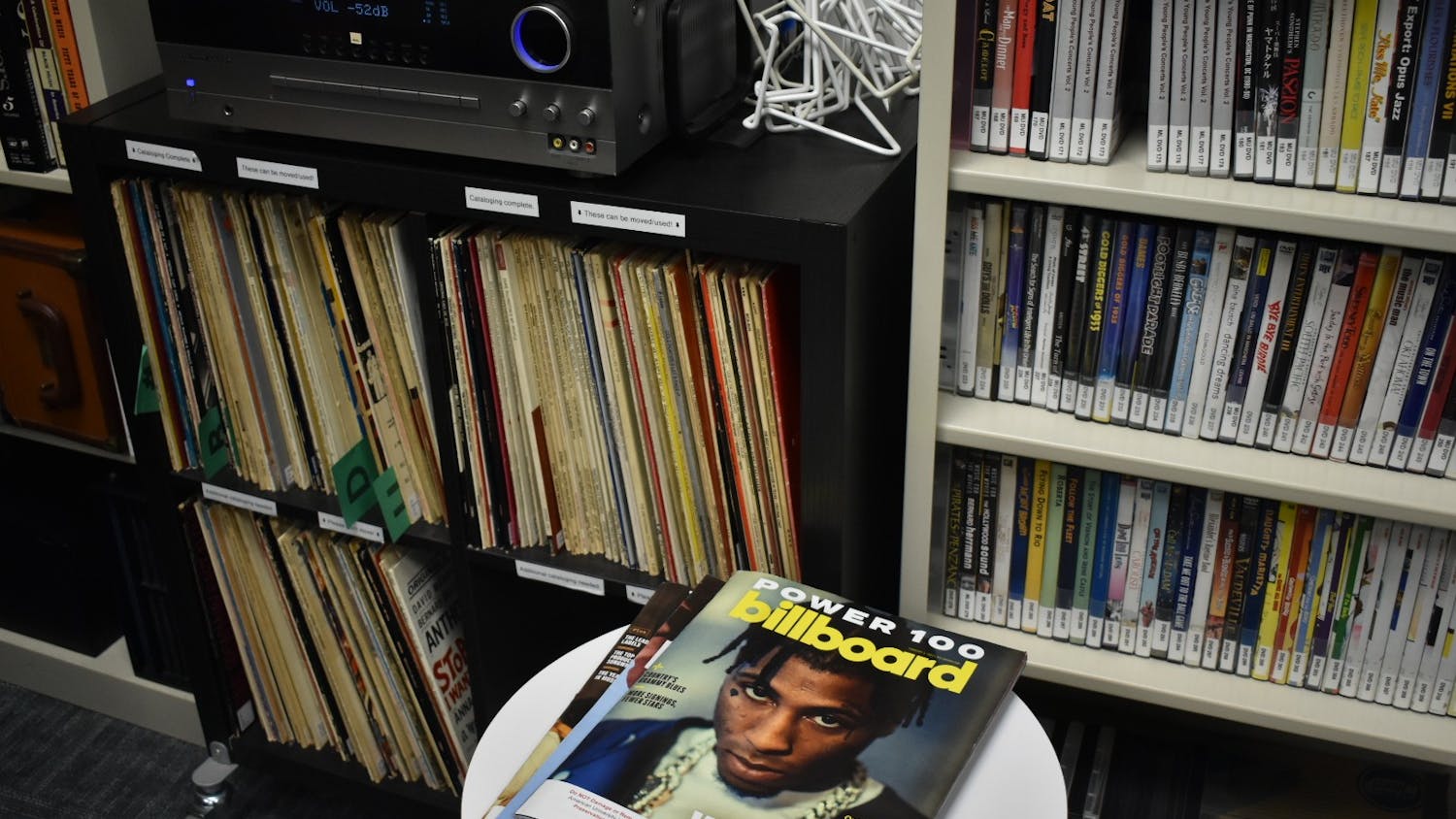The band Braids, a tight knit trio of friends from Calgary, Canada consisting of Austin Tufts, Taylor Smith and Raphaelle Standell-Preston, has a natural, somber electronica with searching lyrics as their trademark sound. The band, who released their first album “Native Speaker” in 2011 and is now on its current sophomore album “Flourish // Perish,” curates a rigorous tour that enables them to play current songs off their albums and also acts as a testing ground for newer material.
The Eagle’s David Kahen-Kashi spoke to Tufts about life on the road and how the band found a balance between technical and performance of songs live.
Eagle: How does the band prep for a tour? It sounds pretty hectic.
Austin Tufts: We’re kind of in the middle of a big tour and we’ve been on tour for two months, we just flew into Halifax, which is a small city in Canada, to play a festival called “Halifax Pope Explosion” and we were in Seattle yesterday. In the middle of this tour with Hundred Waters, it was like a three day drive from Seattle to Minneapolis, so we got offered to play the festival, so we’re like “Let’s do it!” So we flew all the way to Seattle to the opposite side of the continent of Halifax to play the festival tonight that we’re going to right now and then we’re gonna fly back into Minneapolis.
E: What’s it like to perform on such a tight schedule?
AT: It’s pretty hard, to be honest, like sometimes the logistical stuff and the running around can have a negative impact on the performances and on the mental state of the group. So we do our best to try and get as much sleep as we can. Eat as well as we can. Just doing a Whole Foods tour across America. Like whenever we can, we eat at Whole Foods. Just having that kind of nutrition helps keep you healthy when you’re running on a little sleep. We try and be as comfortable as we can within our means, but definitely having such a packed schedule is a tough thing to do, but you get used to it.
E: Taking it back to the beginning, what were the origins of the band and how did you guys get together?
AT: Well, it’s kind of funny to talk about because it was so long ago, you know? We all just started playing music together in high school. We were all just really like best friends and like-minded musical individuals and we all just sort of came together really serendipitously. After high school – I’m a year younger than the other guys in the band – we all stuck around Calgary, Alberta for a year after waiting for me to graduate [be]cause that’s how strong the musical connection was. We just realized this kind of thing doesn’t come around very often, so let’s make sure that we preserve it. It was really cool that they stuck around. Once we graduated, we all moved to Montreal together, but that’s when we started becoming more serious about this project and decided to pursue it as a career.
E: What’s it like to take the new songs from “Flourish // Perish” and getting a chance to perform them live as opposed to performing the songs off your last album “Native Speaker”?
AT: It’s a completely different process, like the recording and performance process was basically the polar opposite to what we experienced with the first record. “Native Speaker” was written two years ago in a completely live environment. It was just playing shows and hashing out how the song should be composed. We were all just sitting live in a rehearsal studio, just doing that together with guitars and drums in a live environment, and then when we went to go record “Native Speaker,” it was like, let’s put these songs that we already have composed to tape basically and we went and recorded it.
So touring those songs, there was not any prep in between recording and touring, we already had the songs ready in a live environment, whereas with “Flourish // Perish,” we went in after touring for so long, we toured like 18 months on “Native Speaker.” Finally after doing that, we went back in the studio, and we just spent like a year and a half recording a studio record. We never learned how to play any of the songs for “Flourish // Perish” live until the record was finished being mastered it was kind of like, “how do we translate this completely studio record into a live environment.” It’s a very difficult process. Like we’re caught with all these tech problems cause it’s a very electronic based record.
It’s more like energy and so we really had to spend a long time crafting these songs in that new way and not being afraid to abandon how they were on the record in order to rework them for a live environment. Like “Amends,” the first track we put up from this record, it’s like we had to completely rewrite the entire back end of it, just because the energy didn’t translate properly in a live environment. Now, we’re like a year and a half playing our first show, or like a year after playing our first show with “Betrayal,” and it’s like really working now. I feel good playing these songs live than I do playing them on a record now. We feel really, really connected to these songs in that context.
E: What influences the move toward an electronic direction and is it hard replicating that electronic sound in a live environment?
AT: Well, even “Native Speaker” was very technical, it’s just technical in a different way. We’ve always been heavily into electronics, but before it was electronics manipulating guitars and now it’s like electronics add sounds to us. It was heavily technical always, but now it’s like technical with a new set of parameters. More like how to properly manipulate the computer. But after a year of doing it, I’m really comfortable with it.
E: What are you working on right now?
AT: We’ve got big plans. We’re already like five or six songs into our new, new record. Into our third LP, and we’re performing those songs live. It sort of came out of desire to not be constantly working backwards and not constantly be like trying to recreates songs that don’t work in the live environment and force them to work in a live environment. Just looking at our body of work and saying these songs work live and these songs don’t and then flushing out our set with brand new songs that we’re really excited about writing. You travel so much and you play so many shows. We just played 50 shows and we’re about to do 30 more so it’s not worth it to do things you’re not excited about.
E: How do you judge what’s going to make the cut and what’s not based off of the audience reaction?
AT: It’s not so much judging from the audience, to be honest, it’s like once you play the song in it’s entirety from front to back like 150 times, you learn what feels right. Some of that is coming from the audience because they give a certain amount of energy. But to be honest, it’s mostly what feels right with us.
E: Are there any artists you wish to collaborate with?
AT: We don’t really collaborate with anybody. It’s just like we’re a very self-contained creative unit. There’s lots of artists that I love and that I’m totally inspired by and rock my musical world on a daily basis, but I don’t know if I ever want to work with them and not out of disrespect to them at all, but the way in which we create, we’re very insular and we create stuff when we’re completely left alone to our own thing.
E: What are the best and worst parts about touring?
AT: Kind of the worst part is what I’m doing right now, trying to do a million things at once and never having quite enough time to do anything to its full capacity. Perhaps it’s just really frustrating, to be honest. The best parts of touring are to be exploring the world with your two best friends and being able to take your music that you worked so hard and crafted so well all over the world, and just to be able to show people what you do and to have the support of a group of friends there at every turn to be like they have your back. I think what we have as a band is an extremely special relationship and how much we care about each other and we just started working with our own sound guy now and it’s like we found a guy who’s like perfect for the dynamic. Having a loving, caring dynamic is one of the most important things on tour and it really pays off, to be honest, you run into so much s—t on the road, you run into so many hard things, and to have people there to really have your back is amazing.
Catch Braids at DC9 with Hundred Waters on Nov. 11.




